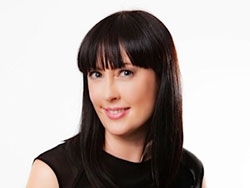Nutrition is linked to our physical health and also our mental health. A pioneering group of Australian dietitians working in the field of mental health have created role statements designed to showcase the vital role dietitians play when it comes to treating people with mental illness, writes Karen Keast.
Australian Bureau of Statistics figures show 45 per cent of the Australian population is expected to experience mental illness or disorders at some stage in their life.
Subscribe for FREE to the HealthTimes magazine
With the nation’s high rate of mental health problems, dietitians are coming into regular contact with clients experiencing mental health co-morbidities.
Mental health problems are associated with poorer lifestyle choices and habits ranging from lower levels of physical activity due to the effect of medications, difficulties accessing and preparing healthy foods along with making poorer food choices, misuse of illicit or prescription drugs, substance abuse and reduced social interaction.
Research shows people with serious mental illnesses are at least twice as likely to be obese and have significantly reduced life expectancy due to cardiovascular diseases.
As well, schizophrenia is known to be an independent risk factor for glucose intolerance and most antipsychotic medications induce weight gain and metabolic syndrome.
With many Australian dietitians revealing they often feel ill-equipped to manage clients with mental health co-morbidities, two Sydney Accredited Practising Dietitians (APDs) working in the field of mental health helped forge the Dietitians Association of Australia’s first Mental Health Interest Group.
Dr Nerissa Soh and Jan Plain, together with a team of clinical and research dietitians from the Mental Health Interest Group, began work to research, create and introduce an evidence-based role statement for APDs, to assist and equip them with the knowledge to work with clients experiencing mental health problems in clinical and community settings.
“The role statement gives dietitians an idea of what their job is in mental health,” Dr Soh said.
“Mental health is still regarded as a young field for dietitians.”
The role statement for APDs defines the role and responsibilities of dietitians in the area of mental health, and outlines where other allied health professionals, such as occupational therapists, physiotherapists, speech pathologists and exercise physiologists step in.
It also promotes the knowledge and expertise of APDs when it comes to the prevention, treatment and management of the chronic disease risks and conditions which are prevalent in people with mental illness.
“APDs identify, assess and monitor the mental and physical health risks associated with food and
nutrition, and plan and manage the nutrition and dietetic care, lifestyle and well-being of people with mental illness,” the summary states.
“A referral to an APD by a psychiatrist, nurse, GP or allied health professional is strongly recommended when a client has: pre-existing metabolic co-morbidities; is at risk of metabolic syndrome; has an unrelated acute or chronic illness; and/or has developed metabolic symptoms on commencing a new psychotropic medication, including lithium.”
Ms Plain said the role statement was designed to support dietitians working with people with mental health issues.
“It’s giving people confidence, understanding and knowledge which also helps reduce the stigma associated with mental illness,” she said.
“I think it’s really important that we realise here that people with mental illness deserve exactly the same sort of care for their condition as any other person in the population.
“It comes down to a right for their care and a quality for their care.
“Mental health is everybody’s business. We want dietitians to realise that it’s a part of dealing with health care, it’s not something specifically limited to one area.”
A senior dietitian and manager of the Well-Being Unit at Macquarie Hospital, a specialised mental health residential facility, Ms Plain has been a dietitian for 40 years, working directly in mental health for the past eight years.
Dr Soh is a research officer at Child and Adolescent Mental Health Services at Northern Sydney Local Health District, who has worked in mental health and in eating disorders for the past 13 years.
The Mental Health Interest Group also completed a second role statement aimed at informing other health professionals about the role of dietitians when it comes to treating clients with mental illness.
“As mental health is still a young field in dietetics, this second role statement clarifies to our health professional colleagues what skills and services an APD provides to clients with mental illnesses, including in multidisciplinary treatment teams,” Dr Soh said.
The statements are also working to assist dietitians in advocating for dietetic positions in mental health services.
“Dietitians are saying – it’s great, we need this information, we need this support from something that is published and endorsed and to be able to advocate and justify positions within their health sectors,” Ms Plain said.
The main role statement for dietitians sets out the specific skills beneficial to APDs working with clients with mental health problems as well as key activities for dietitians working in the area of practice, ranging from those at an individual level to a service or organisational level.
Perhaps, most importantly, the statements highlight dietitians as an integral part of the management of patients with mental health problems, showcasing that the right approach to nutrition can make a vital difference.
“Nutrition care is for everybody and critical for everybody’s health and well-being and recovery,” Ms Plain said.
“Nutrition care is really fundamental to the care of anyone, including people with mental health illness. It’s the basis of our very being. We can’t survive without food.”













